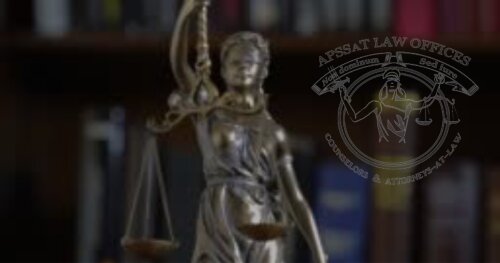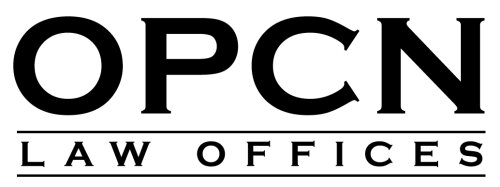Best Environmental Law & Compliance Lawyers in Philippines
Share your needs with us, get contacted by law firms.
Free. Takes 2 min.
Or refine your search by selecting a city:
List of the best lawyers in Philippines
About Environment Law in Philippines
Environmental law in the Philippines is a comprehensive framework aimed at protecting and conserving the country's natural resources while ensuring sustainable development. The archipelago, rich in biodiversity and natural resources, faces several environmental challenges, including deforestation, pollution, and biodiversity loss. The Philippine Constitution, along with numerous laws, such as the Clean Air Act, Clean Water Act, and the Ecological Solid Waste Management Act, provides the legal foundation for addressing these issues. The Department of Environment and Natural Resources (DENR) is the primary government body responsible for implementing and enforcing these laws.
Why You May Need a Lawyer
Legal expertise can be crucial for individuals and organizations dealing with various environmental issues in the Philippines. Common situations where legal help may be required include:
- Compliance and Permits: Navigating complex environmental regulations and obtaining necessary permits for projects that may impact the environment.
- Environmental Litigation: Involvement in legal disputes regarding environmental harm or violation of environmental laws.
- Land Use and Zoning: Dealing with issues related to land development, zoning laws, and land use planning.
- Conservation Efforts: Legal guidance for setting up conservation programs or trusts aimed at protecting natural resources.
- Corporate Responsibility: Ensuring that business operations comply with environmental standards and mitigate ecological impacts.
Local Laws Overview
The legal landscape for environmental protection in the Philippines includes several key statutes:
- Republic Act No. 8749 (Clean Air Act): Sets air quality goals and regulates emissions to minimize air pollution.
- Republic Act No. 9275 (Clean Water Act): Establishes water quality guidelines for the preservation of the country's water bodies and the promotion of a clean and safe water supply.
- Republic Act No. 9003 (Ecological Solid Waste Management Act): Provides a framework for systematic, comprehensive, and ecological waste management programs to ensure the protection of public health and the environment.
- Republic Act No. 7586 (National Integrated Protected Areas System Act): Declares certain areas as protected to preserve ecological balance and natural diversity.
- Executive Order No. 578: Directs the integration of biodiversity objectives in government policy.
Frequently Asked Questions
What is the role of DENR in environmental law?
The Department of Environment and Natural Resources (DENR) oversees the implementation and enforcement of environmental laws and policies, manages natural resources, and ensures sustainable development in the Philippines.
How can companies ensure compliance with environmental laws?
Companies can ensure compliance by conducting regular environmental audits, obtaining necessary permits, implementing sustainable practices, and staying informed about changing regulations.
What are environmental impact assessments (EIA)?
An Environmental Impact Assessment (EIA) is a process that evaluates the potential environmental effects of a proposed project before it is carried out, ensuring minimal negative impacts on the environment.
How does the government enforce environmental laws?
The government enforces environmental laws through regulatory agencies such as the DENR, utilizing permits, penalties, inspections, and litigation to ensure compliance.
Can individuals report environmental violations?
Yes, individuals can report violations to the DENR or local environmental offices. Public participation is encouraged to promote accountability and environmental stewardship.
What are the penalties for violating environmental laws?
Penalties vary depending on the severity of the violation and may include fines, imprisonment, or revocation of permits. Specific sanctions are prescribed under each environmental law.
What are the rights of indigenous peoples regarding environmental protection?
Indigenous peoples have rights to their ancestral lands and resources, recognizing their role in conservation and sustainable management, as outlined in the Indigenous Peoples' Rights Act (IPRA).
What is the process for obtaining environmental permits?
The process typically involves submitting an application to the DENR, conducting an EIA, undergoing public consultations, and receiving approval following the evaluation of environmental impact.
Are there incentives for businesses adopting eco-friendly practices?
Yes, there are incentives such as tax breaks, grants, and recognition awards for businesses that incorporate sustainable practices and reduce their environmental impact.
How does land conversion affect environmental laws?
Land conversion can lead to significant ecological impacts and is subject to regulation. Any change in land use must comply with zoning laws and environmental clearances.
Additional Resources
For more information and assistance regarding environmental legal issues, consider reaching out to these resources:
- Department of Environment and Natural Resources (DENR): The main agency for environmental policy and regulation.
- Haribon Foundation: A non-profit organization focused on biodiversity conservation through community empowerment and research.
- Environmental Legal Assistance Center (ELAC): Provides legal assistance to communities facing environmental issues.
- Philippine Environmental Governance Project (EcoGov): Supports local government units in improving natural resource management.
Next Steps
If you need legal assistance in matters concerning environmental laws in the Philippines, consider the following steps:
- Research: Begin by understanding the specific environmental issues you are facing and gathering relevant documentation.
- Consultation: Schedule a consultation with a lawyer specializing in environmental law to discuss your case and explore options.
- Engage Legal Services: Hire a lawyer or law firm with a proven track record in environmental cases to represent your interests.
- Monitor Compliance: Work with your legal team to ensure adherence to all relevant environmental regulations and standards.
Lawzana helps you find the best lawyers and law firms in Philippines through a curated and pre-screened list of qualified legal professionals. Our platform offers rankings and detailed profiles of attorneys and law firms, allowing you to compare based on practice areas, including Environmental Law & Compliance, experience, and client feedback.
Each profile includes a description of the firm's areas of practice, client reviews, team members and partners, year of establishment, spoken languages, office locations, contact information, social media presence, and any published articles or resources. Most firms on our platform speak English and are experienced in both local and international legal matters.
Get a quote from top-rated law firms in Philippines — quickly, securely, and without unnecessary hassle.
Disclaimer:
The information provided on this page is for general informational purposes only and does not constitute legal advice. While we strive to ensure the accuracy and relevance of the content, legal information may change over time, and interpretations of the law can vary. You should always consult with a qualified legal professional for advice specific to your situation.
We disclaim all liability for actions taken or not taken based on the content of this page. If you believe any information is incorrect or outdated, please contact us, and we will review and update it where appropriate.
Browse environmental law & compliance law firms by city in Philippines
Refine your search by selecting a city.
















